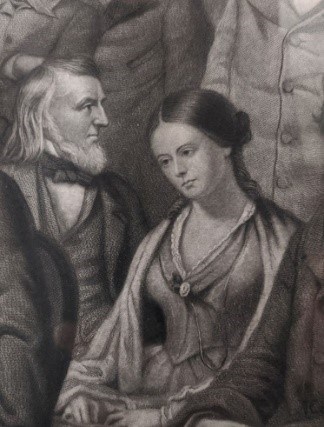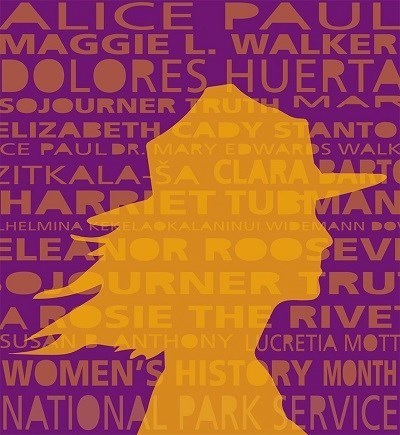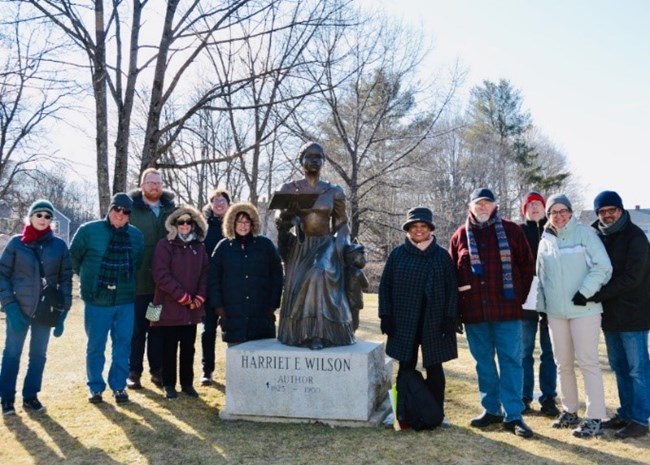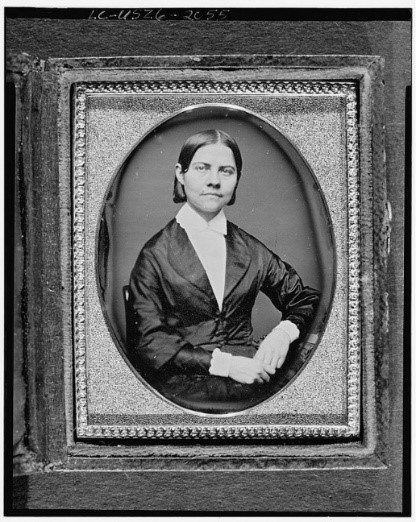Last updated: April 5, 2021
Article
Highlighting Women’s History at Freedom’s Way National Heritage Area

Freedom's Way NHA

Public Domain, via Lowell National Historical Park
The region that Freedom’s Way encompasses was home to suffragists such as Harriet Hanson Robinson (1825-1911) and Hazel MacKaye (1880-1944); abolitionists such as Ellen Garrison (1823-1892), Julia Ann Robbins Barrett (1819-1900), and Margaret Fuller (1810-1850); and countless other women who made history in the arts, literature, and science.

NPS Photo
Fittingly, Freedom’s Way has produced an incredible body of work on women’s history and women’s rights, tracing the origins of the movement back to America’s earliest suffragists, activists, and feminist thinkers, as well as commemorating the centennial of the 19th Amendment in unparalleled richness this past year.
In their celebration of the centennial of the 19th Amendment, which granted women the right to vote, Freedom’s Way published the e-book Women Who Made History: Profiles from the Freedom’s Way National Heritage Area - Commemorating the 100th Anniversary of the 19th Amendment, written by Freedom’s Way Executive Director Patrice Todisco and edited by Linda Bowie and Desiree Demski-Hamelin of Freedom’s Way.

NPS
“Commemorating the Centennial of the passage of the 19th Amendment provided an unparalleled opportunity to explore the untold stories of women from within the Freedom’s Way National Heritage Area,” says Todisco. “Most excitingly, the work provided new ways of thinking about and sharing history, inspiring communities to participate in the development of a collective narrative about women in the region.”
The book features several American suffragists and women’s rights activists from the Freedom’s Way region spanning Massachusetts and New Hampshire, whose tireless work from the nation’s earliest days and throughout the 19th century led to the passage of the 19th Amendment. In addition to Hanson Robinson and MacKaye, suffragists from Freedom’s Way featured in the Women Who Made History e-book include Louisa May Alcott (1832-1888) (author of Little Women) and Lydia Maria Child (1802-1880) (author of The History of the Condition of Women in Various Ages and Nations and founding member of the Massachusetts Woman Suffrage Association).

Desiree Demski-Hamelin, Freedom’s Way National Heritage Area.

Library of Congress, via Women’s Rights National Historical Park
Freedom’s Way also presented the 100 Years, 100 Days, 100 Facts 19th Amendment Commemoration Countdown from May to August of 2020, and features innovative women in history in its Heritage Stories: Visionaries and Experimenters vodcast series. With such incredible online resources, it is easy to find joy, amazement, and appreciation in the stories of these Freedom’s Way women who made a difference in their community and the world. Make sure to check out these great stories from Freedom’s Way in celebration of Women’s History Month as well as throughout the year, as we remember their diverse lives and innovative contributions to our cultural heritage.
